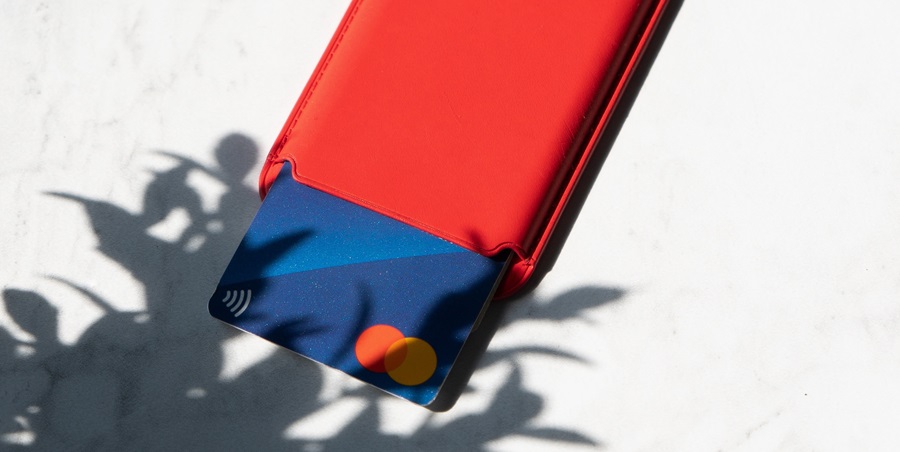In today's fast-paced world, it's no secret that consumer preferences are constantly evolving. With every new advancement, the market shifts, yet Mastercard remains a powerhouse in the financial world. Their connection to consumers is pushing their brand equity to rise continuously over the last five years, from $70.8B in 2018 to $110.6B in 2023. Consistently at the top of the Financial Services category, Mastercard now ranks #7 most valuable brand in the U.S.

Mastercard is outpacing its competitors in brand equity growth, thanks in large part to its focus on innovation, long-established reputation as a beacon for trust, and proven purpose-driven initiatives. As progress toward an always-on, digital-first society continues to accelerate, Mastercard is ready for the future—while building on its strong history as the home of one of the most iconic experiential platforms: priceless.
From the multisensory evolution of the Mastercard brand — symbol, sonic DNA, restaurants and more — to groundbreaking, inclusive innovations and initiatives, Mastercard has stood up and stood out.
Reaching new audiences by entering new territories
Mastercard's relentless focus on serving a wide range of critical stakeholders - encompassing consumers, small businesses, governments, large enterprises and bank partners - is helping them deliver on their mission to digitize transactions, applying technology to power economies and empower people. The brand is extending its support to areas of the business beyond the card and has launched a new B2B campaign to showcase the vast capabilities and solutions the company offers – from Open Banking to crypto fraud monitoring for governments and personalization services for major companies like McDonalds.
With recent investments in fintech, including its Finicity Open Banking platform, breakthroughs in AI to combat fraud and strengthen security, strategic partnerships with brands including JP Morgan Chase to introduce Pay by Bank, and Apple to introduce Apple Pay Later, the company is a fast-moving, innovative and a diversifying leader in the industry. Mastercard is proving that they are at the forefront of emerging financial trends, while remaining focused on supporting small business owners and consumer preference.
Multisensory brand innovation drives Meaningful, Different and Salient global impact
Kantar evaluates brands on a matrix of being Meaningful, Different and Salient. Here, Mastercard ranks very highly compared to other brands and has seen significant momentum compared to direct competitors. In today’s environment, it’s critical to understand the matrix of how Meaningful, Different and Salient a brand is; the meaning of a brand can stem from a functional meaning (i.e., the brand does a good job of fulfilling a need consumers have). Think of how Mastercard is digitizing payments so people can book a flight, hail a cab or buy tickets to a game – from the comfort of their homes. As a global technology company—and lifestyle brand—Mastercard is now playing a vital, valuable, and convenient role in consumer’s daily lives.
Remaining more powerful than any of the top ten banking brands, Mastercard’s Meaningful index showcases they are not only meeting consumer’s needs, but consumers feel emotionally connected to them. The brand’s priceless platform has been going strong for over 25 years, thanks to its timeless and increasingly relevant insight that experiences matter more than things. By connecting consumers to their passions, whether sports, music, shopping or culinary, Mastercard differentiates itself from its competitors as it builds affinity and trust with consumers.
Strong salience is the result of amplified meaning and difference and acts as a catalyst for growth. Highly salient brands are the ones that spring to mind when a consumer thinks of a category or has a need. In a post-pandemic world, Mastercard’s value has continued to soar, while its leading multisensory brand marketing strategy ensures it's memorable for consumers. With its symbol logo and sonic melody proven to denote trust and acceptance at the point of sale, Mastercard is ensuring their brand salience is high across all five senses through innovations like restaurants and fragrance.
Driving deeper brand connections by doing well and doing good
“Purpose is not just about philanthropy but also about the ability to embed social good into the core business and stand for something that matters in a way that impacts the bottom line,” said Raja Rajamannar, Chief Marketing & Communications Officer and President, Healthcare at Mastercard.
By embedding social good into the core business, Mastercard works to ensure its products and systems work for everyone equally. They’ve called this focus on delivering value “doing well by doing good.” The commitment to sustainable social impact was seen in the creation of the Mastercard Foundation at its 2006 IPO and continues today in many ways, including the Mastercard Center for Inclusive Growth, the Mastercard Impact Fund and a commitment to help bring 1 billion people into digital economy, among others. As the economy continues to be uncertain—with household debt levels on the rise—Mastercard’s strong commitment to empowering small business owners through programs like Strivers will continue strengthening their position as a trusted brand with existing and new digital payment consumers.
The brand continues to embody the company mantra as a leader in inclusively designed products. The award-winning Touch Card, launched in 2021 and available in dozens of markets today, is a system of notches that allow people to identify their card using touch alone, aimed to solve pain points experienced by people who are blind and low sighted. Mastercard also introduced True Name, an acclaimed feature that enables transgender and nonbinary individuals to confidently showcase their chosen name on their credit card, available in more than 30 global markets today.
It is often said that the key to a successful brand is building a community - creating engaged consumers who then become ambassadors for the brand. The Mastercard-led Priceless Planet Coalition unites business across industries—and their consumers—around the singular purpose of restoring 100 million trees by 2025. Ranking in a fair share of positive consumer perceptions in this area, Mastercard has the opportunity to be the first financial services brand to rank within focused or leading amongst consumers in sustainability in 2024.
Explore BrandZ Data for Free
Kantar recently launched a new, free interactive tool using BrandZ’s wealth of data where you can see an overarching view of a brand’s performance. Discover your top brand equity indicators—and those of your competitors—in seconds with Kantar BrandSnapshot powered by BrandZ.

